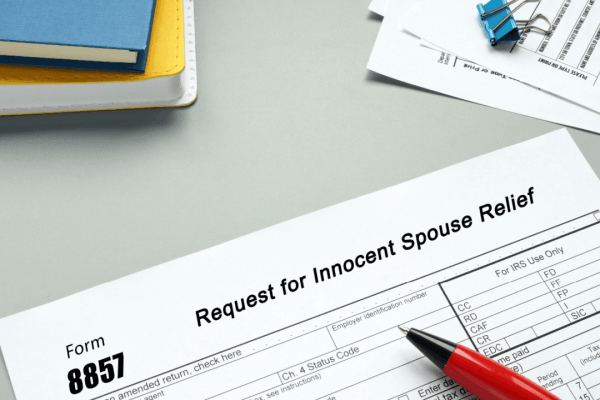
IRS Debt Cancellation Form: How It Works and When to Use It
IRS Debt Cancellation Form: Understanding Its Purpose
IRS debt cancellation form is a common term used when taxpayers receive a notice about canceled debt. While it may sound like a tool for eliminating IRS debt, it actually refers to IRS Form 1099-C, which reports debt that has been forgiven or discharged by a creditor. Knowing when this form applies—and how to handle it—can save you from surprises at tax time.
What Is the IRS Debt Cancellation Form?
The IRS uses Form 1099-C to track canceled debt. If a creditor forgives $600 or more, they must file this form with the IRS and send you a copy.
IRS Form 1099-C Explained
Form 1099-C is officially called the Cancellation of Debt form. It includes key details such as:
- The amount of debt canceled
- The creditor’s information
- The date of the cancellation
This form alerts the IRS that you received a financial benefit that may be taxable. Learn more in our IRS debt relief overview to understand the implications.
Common Scenarios
You might receive a 1099-C if:
- You settled a credit card account for less than what you owed
- A lender forgave part of your mortgage, medical bill, or personal loan
- Certain legal proceedings can discharge a debt.
When the IRS Debt Cancellation Form Applies
While IRS debt itself typically isn’t canceled through Form 1099-C, the form still applies in some tax-related situations.
Cancellation by a Creditor
If a lender stops trying to collect your debt and cancels the balance, they will issue a 1099-C. This doesn’t mean the debt is completely gone—it only means the IRS sees it as income, which could be taxable.
IRS Tax Debt Relief
If you qualify for an Offer in Compromise or the IRS places your account in Currently Not Collectible status, it usually won’t issue a 1099-C. However, if a third-party collector forgives your IRS debt, you might receive one.
Tax Consequences of Debt Cancellation
A major misconception is that canceled debt is “free money.” In reality, it can increase your tax liability if you don’t qualify for an exclusion.
Canceled Debt as Taxable Income
In most cases, the IRS treats canceled debt as taxable income. This means:
- It must be included on your federal tax return
- It could bump you into a higher tax bracket
- You may owe more taxes than expected
Exceptions and Exclusions
Thankfully, there are two main exceptions that may reduce or eliminate the tax impact:
- Insolvency Exclusion: If your debts exceeded your assets when the debt was canceled, you may be considered insolvent and exempt from paying taxes on the forgiven amount.
- Bankruptcy Discharge: If bankruptcy discharges the debt, it generally isn’t taxable.
To claim either of these, you must file Form 982 alongside your tax return.
How to File the IRS Debt Cancellation Form Properly
Handling a 1099-C the right way is essential to avoid audits and tax penalties.
Review Form 1099-C Carefully
Make sure the form is accurate. Check:
- The amount of debt canceled
- The lender’s name and address
- The date of the cancellation
If anything seems incorrect, contact the creditor immediately. Need assistance? Use our legal help page to get connected with professionals.
Attach to Tax Return
When filing your taxes:
- Include the canceled debt on your Form 1040 (Schedule 1, Line 8c)
- If you’re claiming insolvency or bankruptcy exclusion, complete Form 982 and submit it with your return
You may need to provide documentation, especially for insolvency calculations.
Why It’s Important to Understand the IRS Debt Cancellation Form
Many people ignore or misunderstand the IRS debt cancellation form, thinking it doesn’t affect them. But failing to report it properly can lead to IRS notices, penalties, or audits. Knowing how to report canceled debt accurately keeps you in good standing and prevents unexpected tax bills.
For more guidance, explore Legal Brand Marketing to see how professionals handle tax liability after cancellation or settlement.
Get Help With Debt Cancellation and Tax Filing
If you’re unsure how to handle your IRS debt cancellation form, it’s smart to work with a licensed tax professional. They can help:
- Determine whether the canceled debt is taxable
- File the right forms and exclusions
- Reduce your tax liability and avoid penalties
Whether your debt was canceled due to hardship, insolvency, or settlement, getting the details right matters. TaxDebtLawyer connects you with vetted tax attorneys who can help you report accurately, avoid audits, and move forward confidently.
Frequently Asked Questions
1. What is IRS Form 1099-C used for?
It’s used to report canceled debt of $600 or more to the IRS.
2. Do I have to pay taxes on canceled debt?
Yes, unless you qualify for exclusions like insolvency or bankruptcy.
3. Can canceled IRS debt appear on a 1099-C?
Usually no, unless forgiven by a third party or through an external agreement.
4. What is Form 982, and how do I use it?
Form 982 allows you to claim exceptions like insolvency and reduce the taxable amount.
5. How do I prove I was insolvent?
You must document your total debts and assets at the time the debt was canceled and attach Form 982.
Key Takeaways
- IRS debt cancellation form refers to Form 1099-C
- It reports canceled debts that may be considered taxable income
- Insolvency and bankruptcy can reduce or eliminate the tax impact
- Proper filing helps you avoid audits and extra tax bills
- A tax professional can help you file correctly and reduce liability
Free Tax Case Review
If you are struggling with tax debt or have received a letter from the IRS complete the form below.Advertising. This site is a marketing service and does not provide legal or tax advice. Submitting information does not create an attorney-client, tax professional-client, or any other advisory relationship. Results are not guaranteed. A list of participating attorneys, tax firms, and tax providers is available here.
IRS Audit
You received an audit notice from the IRS
Tax Debt Relief
You owe the IRS money and are looking for relief options
Wage Garnishment
The IRS is taking part of your wages to pay off your debt
Tax Lien
The IRS put a legal claim on your property
IRS Property Seizure
The IRS is going to take your property to pay down or pay off your tax debt
Penalty Abatement
You want to request to remove or reduce penalties assessed by IRS
Innocent Spouse Relief
Relief from joint tax debt caused by your spouse or former spouse
Tax Debt FAQ
Common facts, questions and answers about tax debt and tax debt reilef
Tax Debt Lawyer
A tax debt lawyer can help you with your tax debt problems
Recent Posts
- Who Is Eligible for Innocent Spouse Relief and How Does It Work?
- What is an Effective Tax Strategy for Married Couples
- What are the Proofs of Innocent Spouse Relief?
- What Form Do You Use for an Innocent Spouse? | Complete IRS Filing Guide
- What Are the Four Types of Innocent Spouse Relief? | Your Complete Guide



